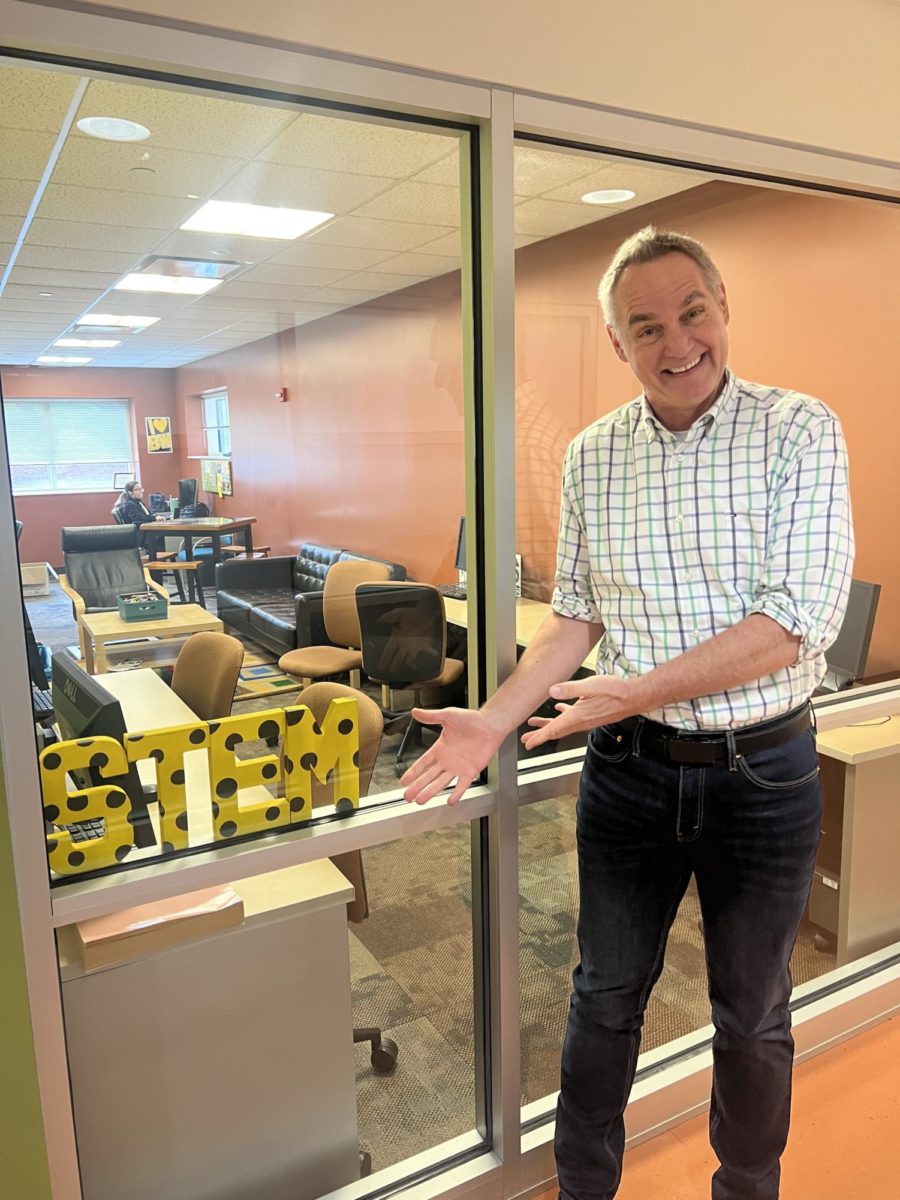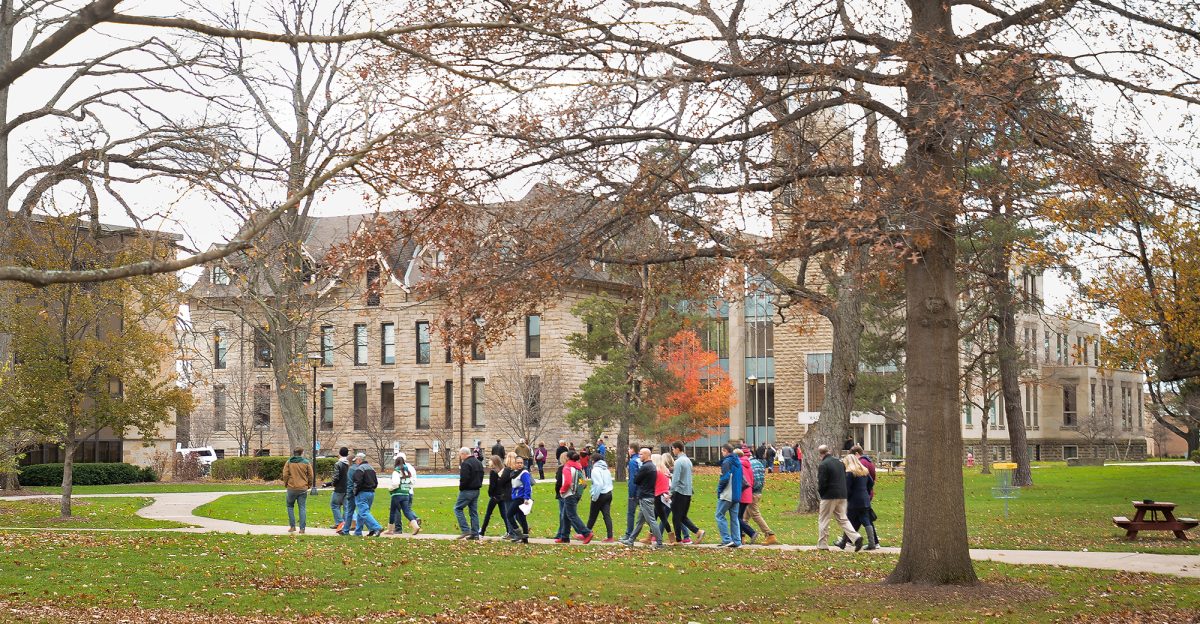Edwin Meyer, associate professor of physics, encourages students to learn to enjoy the struggle of solving problems in his two courses, Quantitative Problem Solving and General Problem-Solving Tech.
A typical day in Meyer’s problem-solving class starts with a quiz that has a challenging question. Meyer’s metric is “the harder the student is thinking, the happier I am,” Meyer said.
After the students have completed their first question, they solve another problem as a group. Meyers does not spend his classes lecturing or requiring students to take notes. Instead, Meyer likes for the students to come up with an answer by themselves. Meyer makes it clear to his students that problem-solving classes are not like other traditional courses.
The inspiration for Meyer’s course setup came after he became a research scientist for Imperial Chemical Industries for 11 years. After his tenure at ICI, he became a recruiter, traveling to various universities to interview students, where he was disappointed by many students’ mindsets regarding problem-solving.
“I was pretty disappointed in their lack of ability to tackle a challenging problem during the job interview,” Meyer said.
Meyer’s goal was to look for candidates who viewed a challenging problem as “an opportunity to grow and develop rather than an unpleasant duty,” Meyer said.
Meyer said that seeing students lacking a growth mindset in college settings was his motivation to join higher education in 2000 at BW.
Meyer said he does not care for the word “learning;” rather, he prefers the word “developing.” Continuing, Meyer wants his students to develop the ability to sit for a long time and struggle.
“We are not trying to transfer knowledge; we are trying to develop attitude, mental stamina, grit,” Meyer said.
For the last eight years, Meyer teamed up with assistant professor Meredith Witt to design the problem-solving courses, and create tests, quizzes, course material, etc. Meyer and Witt’s goals for the course are to keep it interesting for the students.
Witt said this class is enjoyable because any major can take problem-solving courses and walk away with a greater ability to tackle problems.
“I think problem-solving lends itself to any application here at BW. There is no job or place you won’t apply these enhanced problem-solving skills,” said Witt.
Witt mentions that, at the very least, students will gain communication and teamwork skills.
Tommie McQueary, a junior engineering and physics major, said that the course helped him become patient in the problem-solving process.
“I used to think … if I didn’t get the right answer, I was doomed and going to fail,” McQueary said.
McQueary said that he can gain more from the problem by struggling with it rather than being given the answer. After he finds the solution, McQueary said he feels a “runner high.”
“It’s all about attitude. If you don’t think it’s going to work out, then it’s not going to, but if you go into it thinking this is going to make you smarter, you’re going to become a better problem solver,” McQueary said.

































